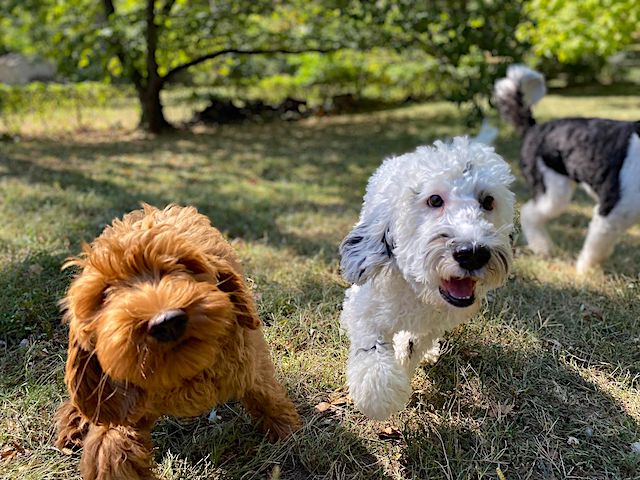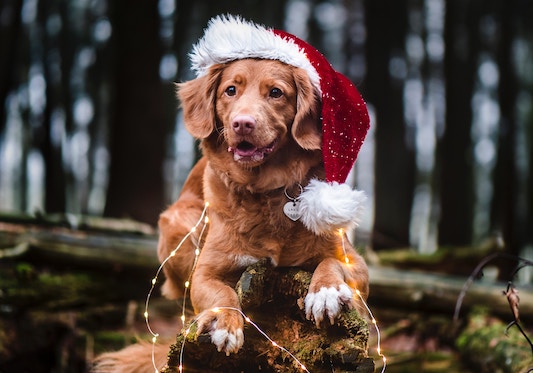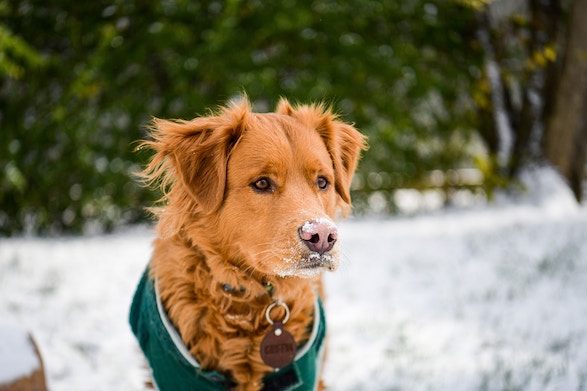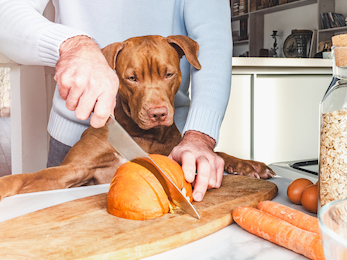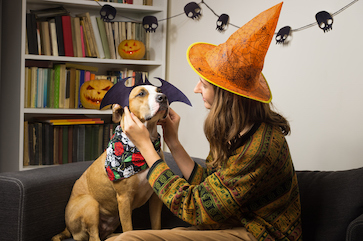Socializing your new puppy is one of, if not THE most important thing you can do as soon as you bring your new family member home. Your puppy needs to be introduced and exposed to new people, dogs, and things they will encounter in their daily lives with you. This may differ depending on your lifestyle and you should socialize your puppy accordingly. Despite personal recommendations like city versus urban life, it is always a constant recommendation that puppies meet 20-50 new people, 20-50 new dogs, and are introduced to 1-3 new environments. It is critical that this is accomplished during weeks 8-12 of your puppy’s life. You can do this by learning about the Sensitive Period in any puppy’s life, using their food and treats to create positive associations, all while keeping their health and safety in mind.
The Sensitive Period
The Sensitive Period (3-12 weeks of age) is the most effective time to socialize your puppy. When receiving a puppy from a reputable breeder, it is a good sign if you have to wait until your puppy is 9-10 weeks before they allow you to take them home. It is during this time that your puppy is learning bite inhibition, communication skills, appropriate play, and self-confidence from their mother and their littermates. It is encouraged for puppies to stay until they are at least 8-9 weeks old; if they are taken away from their litter earlier, it could cause an increase in problem behaviors such as inappropriate play-biting or separation anxiety. During weeks 5-12 of age, puppies are ready to start exploring the outside world. Once you bring your puppy home at 8-9 weeks, get ready to hit the ground running! It is during weeks 8-12 that we recommend meeting those criteria of 20-50 new people, 20-50 new dogs, and 1-3 new environments each week. Since your puppy will not be fully vaccinated yet, it is important that we still meet these recommendations but do so safely.
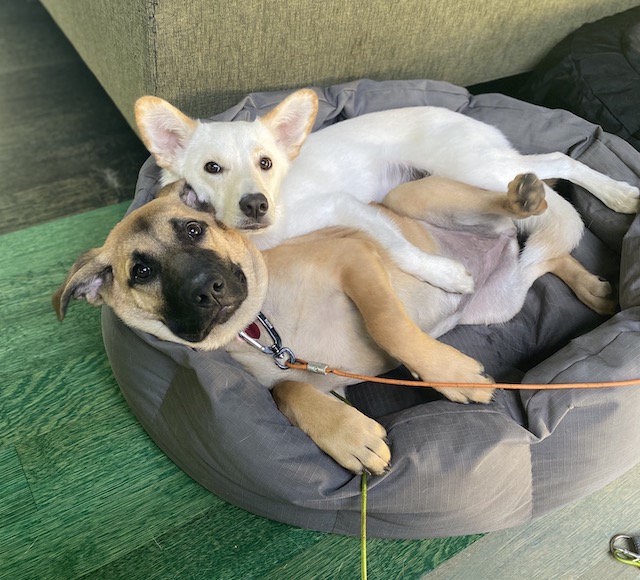
How to safely socialize your puppy
You might be thinking, “20-50? EACH week?” Yes! But rest assured, we’ve compiled a handful of ways you can accomplish this in a timely manner. Beyond the Dog co-owner Sean Savage, CDBC, CPDT, expands more on puppy socialization in our Youtube video “Bringing Puppy Home: Socialization.”
Connect with friends or family members that have puppies or dogs of their own
This is a safe way to socialize your puppy with another puppy you know has been socializing safely or a dog who is up-to-date on their vaccinations. Play dates in the house or in a fenced-in backyard are a great way to allow your puppy to make new friends while also getting their energy out. Keep treats handy and feed your puppy every time they are gentle with the other dog.
Play “Pass the Puppy” with family and friends!
Invite a handful of friends and family over (other puppies are invited too!) and sit in a circle. Make sure each participant has a small bag of the puppy’s food and/or treats. One at a time, they should hold the puppy in their arms or in their lap and pet the puppy while offering them food/treats one piece at a time. After 1-2 minutes, they pass the puppy to the next person and repeat. This allows you to not only socialize your puppy with new people but also get them used to being handled. Pretend you are a child, a groomer, a vet, etc. and feed the puppy each time you pet, grab or hold them in a new way!
Check out Kansas City’s dog-friendly stores or local pet stores
You can meet new people, new dogs, AND check off a new environment all at once. Bring plenty of food and treats for your pup and feed them every time they meet someone or smell something new.
Bring your puppy with you for breakfast, lunch, or dinner!
Kansas City has a handful of dog-friendly restaurants. Bring your puppy’s meal too and feed them throughout your stay to promote calm behavior and create a positive association with any new people or dogs they might meet. Keep your puppy close, even on your lap, so you can supervise them at all times.
Explore your local park or playground with your new puppy in tow
Bring a picnic and relax in the cover of the trees (bring a blanket to stay off the grass directly). Offer your puppy a small piece of food or a treat every time a person or a dog walks by, they hear a new sound, or someone approaches to say hi. If someone does say hello, it’s a great opportunity to offer them a treat and let them feed your puppy by hand!
Recommendations while you’re out-and-about
If a park, store, or patio is especially busy, wait to visit another day so as to not overwhelm your puppy. Don’t let your puppy pick up or chew on unfamiliar items. It’s a good idea to wipe down their paws with a sanitary wipe before returning home. Lastly, try to make sure any dogs they greet are fully vaccinated before allowing them to sniff one another.
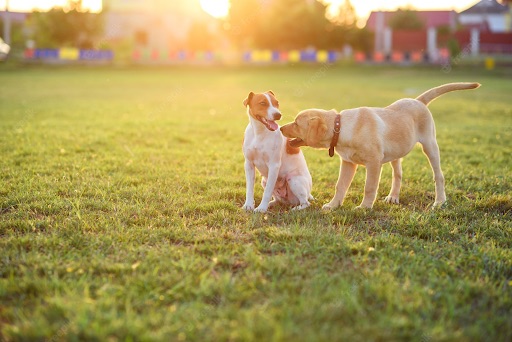
It’s important to always have food and treats on you anytime you are with your puppy. You will want to desensitize them to things like your dishwasher or blender, the doorbell ringing, bikes or cars going by, other dogs walking, and so much more! Always praise your puppy and feed them a small piece of food or treat when events like these take place. With consistent practice and keeping your goals in mind, you will meet 20-50 new people and new dogs and explore 1-3 new areas in no time! If you offer your puppy a small piece of their food and they will not take it, try a yummy treat instead. If they still do not take it, you can try to create distance between your puppy and the stimulus, or go home and try again another time when your puppy might be more hungry. It is normal for puppies to be excited and curious about people and dogs. They should generally seek them out and might even attempt to jump on them or nibble at their fingers. A “helicopter” tail wag or a tail wag that causes their whole body to wag is a surefire way to confirm your puppy is happy and excited. It is NOT normal for your puppy to hide behind you or frantically attempt to get away from a stranger. If you notice these characteristics in your puppy or have concerns about growling, barking, or biting, our puppy experts at Beyond the Dog are here to help!
